Approaching North Star’s unit on the Penraevon Light Industrial Estate I could already smell the aromas of coffee roasting in the air. As I entered the guys were already roasting off batches for their Dark Arches Espresso blend. A name synonymous with a tunnel complex that runs beneath Leeds Railway Station, responsible for redirecting and channeling the river Aire. An appropriate name for an espresso blend which has helped to direct and shape the flow of specialty coffee into Leeds beverage industry.
I’d travelled here to see Roxanne, North Star’s 5kg Toper Coffee Roaster, in her final days before, with the help of their Kickstarter Project, she is to be replaced by a Giesen W15A Coffee Roaster to meet the increasing demand for North Star’s coffee. I’m fond of Roxanne, she’s been responsible for a significant amount of the coffee I’ve drunk over the years and for this I’m eternally grateful. Her humble life began in a shed atop a mountain in Wales infrequently roasting small batches of green coffee, but Roxanne was always meant for greater things and with the help of Krag and Ellis was enlisted to become part of Leeds’ first micro roastery, North Star Coffee Roasters.
The desire to create Leeds’ first micro roastery was born from a trip to Kenya where Krag interviewed coffee farmers in Nyeri to find out what impact FairTrade had had on their lives. This trip spurred Krag to learn all he could about the coffee industry and with the help of barista friend Ellis they decided to grasp the opportunity to become Leeds’ first coffee roasters. Krag began by visiting Hot Numbers in Cambridge, where they were roasting small batches of coffee in house on a 3kg Toper coffee roaster, in order to learn a few tricks for when Roxanne would be ready to start roasting. The next thing to do was to find a green bean supplier, with Falcon Specialty on their doorstep and Krag’s girlfriend Holly having begun working there after their trip to Kenya, it was an easy choice to make. Not forgetting Falcon’s dedication to providing quality green beans and their ethical approach to coffee sourcing.
One of the first things North Star set about doing, was to create an espresso blend was built on taste and quality, but also, with their customers preferences in mind. It was in this vein of thought that Dark Arches was created and to this day still accounts for a large proportion of their business. Dark Arches is a blend of 40% Brazil Fazenda Pantano, a pulped natural Icatu varietal, 40% El Salvador Finca Bosque Lya, a wet processed bourbon and 20% Sumatra Jagong, a semi washed mixture of bourbon and P88 varietals. Which produces an espresso that is both chocolatey and sweet on its own, but with a depth and body that helps it to taste great in milk too.
Speaking to Krag and Ellis they play down their ability to come up with espresso blends, but they’ve been responsible for Dark Arches, 4 versions of Czar Street Espresso, along with Espresso Blends for Baltzersens, Outlaws Yacht Club and a particular favourite of mine, their Christmas blend from last year that tasted just like Christmas. Asking them how they come up with their blends and how the roasting profile changes for blending rather than single origin roasts, Krag explains that they’re always limited by the seasonal coffee that is available. In terms of roasting, considerations are made to try to get the individual coffees to similar solubility levels, which has importance in achieving even extractions when brewing espresso, but essentially they always refer back to taste.
Krag went on to explain that when they began roasting the Sumatra Jagong, which makes up 20% of the Dark Arches blend, they were having some trouble achieving positive results when roasting at 8 bars of pressure. The Sumatran coffee’s washing process known as Giling Basah means it holds on to a slightly higher percentage of moisture. In order to compensate for this they began roasting the Sumatran at 12 bars of pressure to achieve more positive results. This helps to increase the air flow rate, which in turn helps to remove moisture from the bean over the roast time. This adjustment helps to make the Sumatran’s solubility levels more compatible with the other coffees that make up the espresso blend, allowing the Sumatran to give the blend more body and depth while remaining balanced with the other coffees in the blend.
At the end of the day though, both guys always refer back to taste. The science of roasting is important to both of them, as it helps them to achieve consistent results in terms of their roasts, but the most important thing to them is that their coffee tastes good. Extraction levels and TDS%’s can be important, but at the end of the chain the customer is often unaware of these concepts and they judge the coffee based on taste, so this is what Krag and Ellis both do. Regularly cupping their roasts and tasting their coffee to make sure that the quality is in keeping with their high standards. Never more true that when Ellis handed me a cup of their newest coffee the Kenya Kii AB, which he’d brewed on chemex while we chatted. Tasting great in the cup with lots of citrus flavours leaping out, unusually with a somewhat tea like mouthfeel, which I hadn’t expected from a chemex, wonderfully complex it reiterated the point that taste was above all key when it came to roasting.
I enjoyed watching North Star roasting coffee and marking down their roast profiles manually onto roasting sheets. Constantly monitoring the roast time, the temperature inside the drum and the beans to check the progress of the roast, but as the sheets began to pile up it became clear that the demand for their coffee had outgrown Roxanne and as great as she’d been, she would struggle to keep up with the quantity of coffee required to satisfy North Star’s customers. With North Star currently supplying 8 separate coffees and some customers ordering in the region of 65 kilos a week of coffee, it was little surprise that they needed to expand to a larger roaster. A roaster that would allow them to roast larger batches with more consistency and expand their supply of coffee to yet more customers.
So if you’re reading this before 10:31am on Saturday 13th June go check out their Kickstarter Campaign and if you’re reading this after that date, well go to their store and grab yourself a bag of coffee, I can highly recommend their Tanzanian Iwezya, but as it’s a microlot you’ll have to get in quick before they run out of that too.
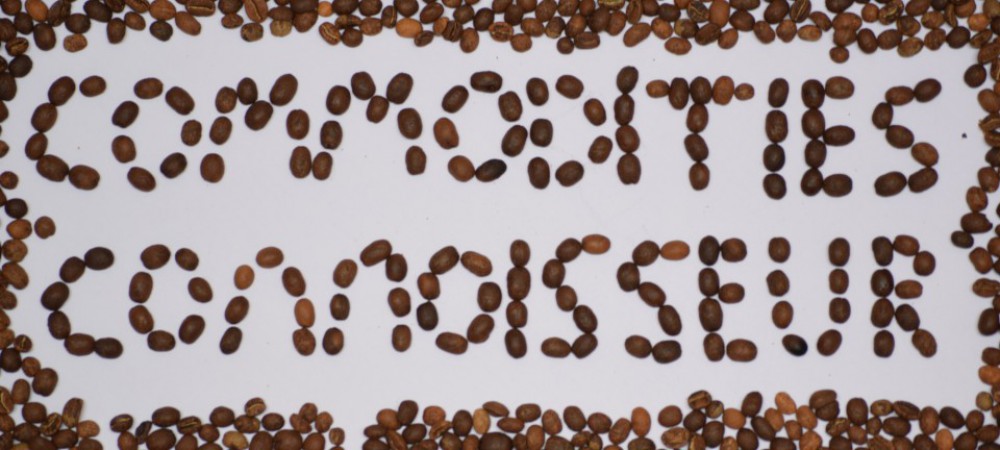
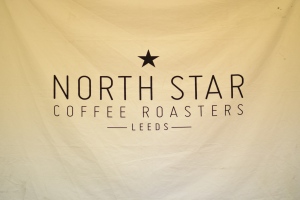
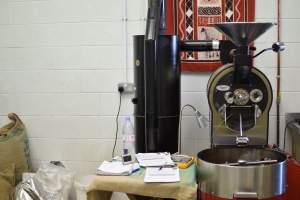
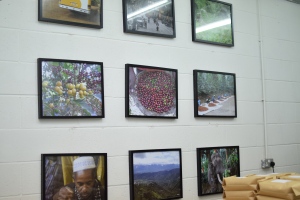
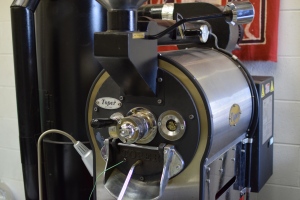
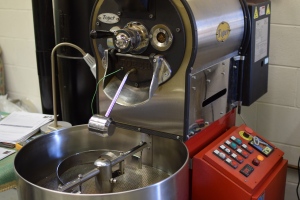
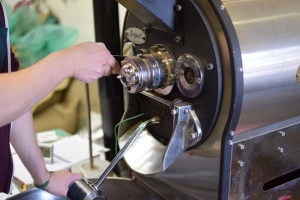
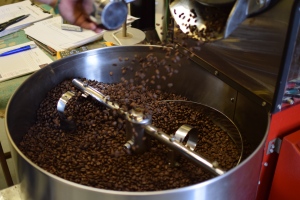
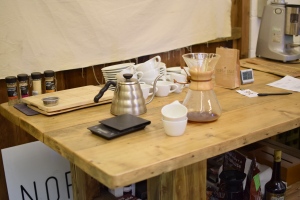
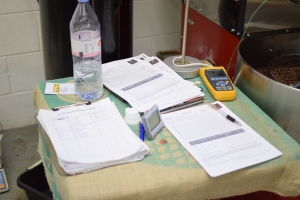
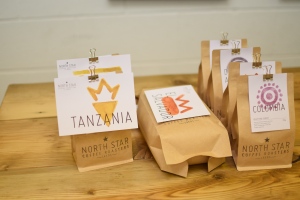
Pingback: North Star Micro Roasters | Brian's Coffee Spot
I love North Star and its coffee. A real pioneer on the Leeds coffee scene. Have you been to the new roastery yet?
Many thanks,
Brian.
LikeLike
Doing a bit of back reading today? Haha. Yer I’ve been down to the new roastery a couple of times, but not while they’ve been roasting yet. Will have to make some time at some point so I can provide some update.
LikeLiked by 1 person